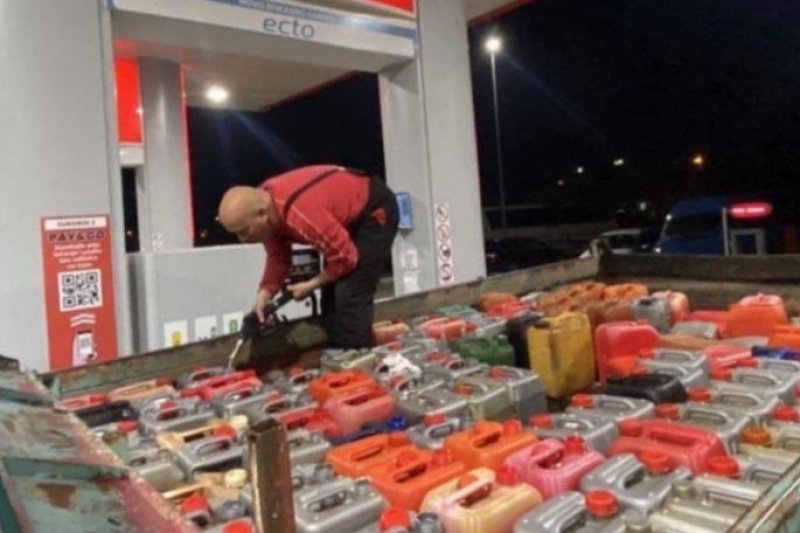Albanians Rushing to Buy Fuel Abroad after Price Increase
High growth of oil prices in Albania has stimulated the so-called border tourism in neighboring countries, where fuel is cheaper.
Market operators claim that although in the domestic market there has been no contraction of consumption after the rise in oil prices, because the car is a necessary tool, sales have fallen at border crossings.
This is because many citizens are rushing to be supplied in Macedonia, or in Montenegro, where oil is still traded at about 1.5-1.6 euros per liter, from over 2 euros that jumped in Albania.
One of the biggest traders shows an interesting phenomenon. In the points of Montenegro there was an influx of vehicles of Albanian consumers, who rushed to fill the cans, or even with cans. He adds that the Montenegrin government has set a ceiling on oil prices so that fuel in the neighboring country has not become more expensive.
But, the influx of Albanian consumers has caused the oil in Montenegro to "run out", forcing the Montenegrin indicator companies to turn to their Albanian partners to receive supplies from Albania!
Oil in Albania is the most expensive in the region and among the 10 most expensive in the world, due to the high burden of taxes levied on fuel, such as excise, turnover tax, other services performed by concessionaires such as marking, pumps, etc. ., which make up about 60% of the price.
In relation to the income levels in the country, oil is very expensive. An Albanian has to spend on average almost 20% of daily income to buy a liter of oil, at today's prices, more than any other citizen in Europe and 17th in the world.
Even in absolute value, Albania, at current levels, ranks among the 10 most expensive countries in the world, along with Finland, Belgium, Denmark, Hong Kong, Norway, Sweden, which has the most expensive fuel in the world, with $ 2.6 for liter. But the per capita income of Swedes is 51.4 thousand dollars a year, or about 12 times more than Albania. As a result a Swede needs only 1.9% of the average daily income to buy a liter of fuel. Even a German's about 2% of daily income is enough.
(Source: Monitor)













